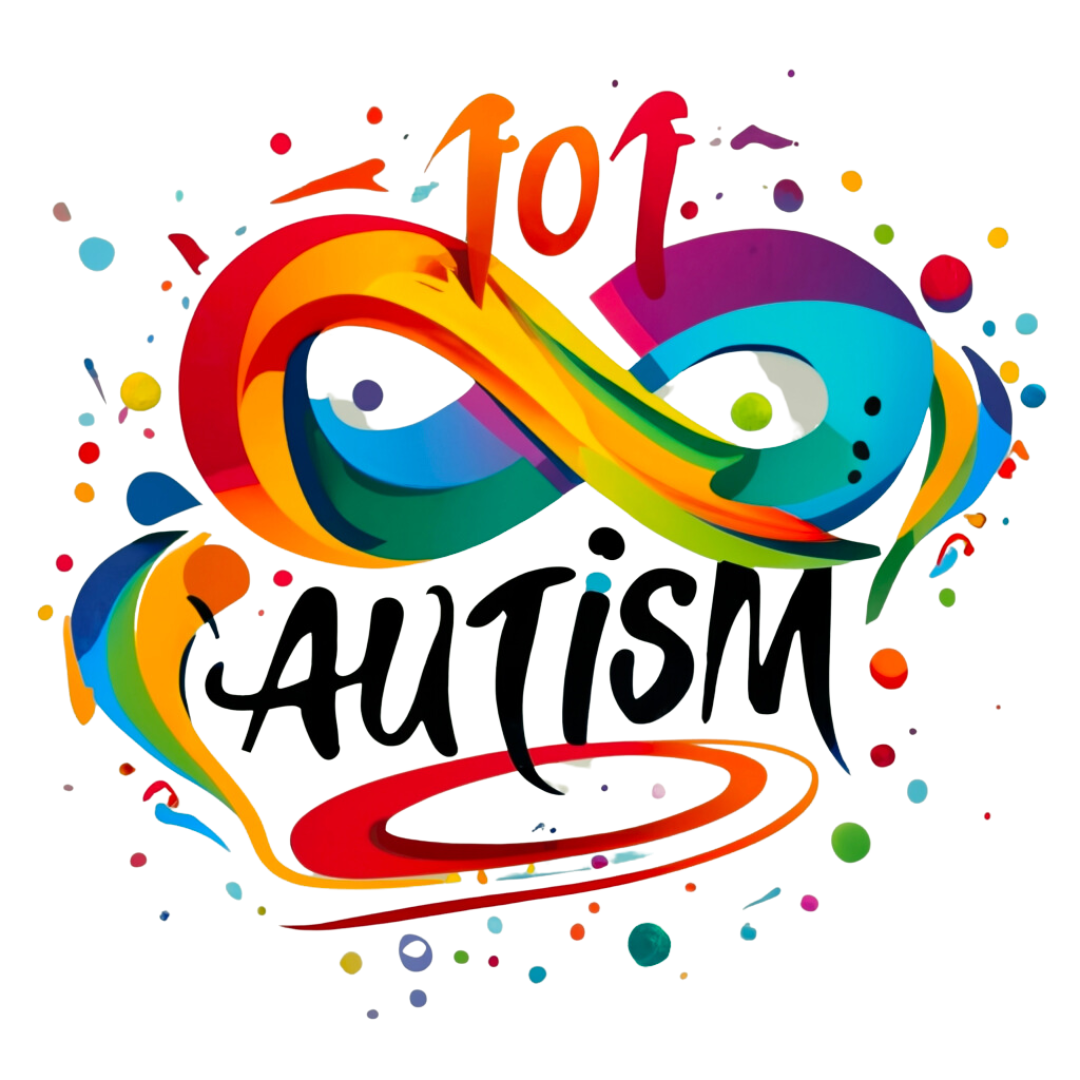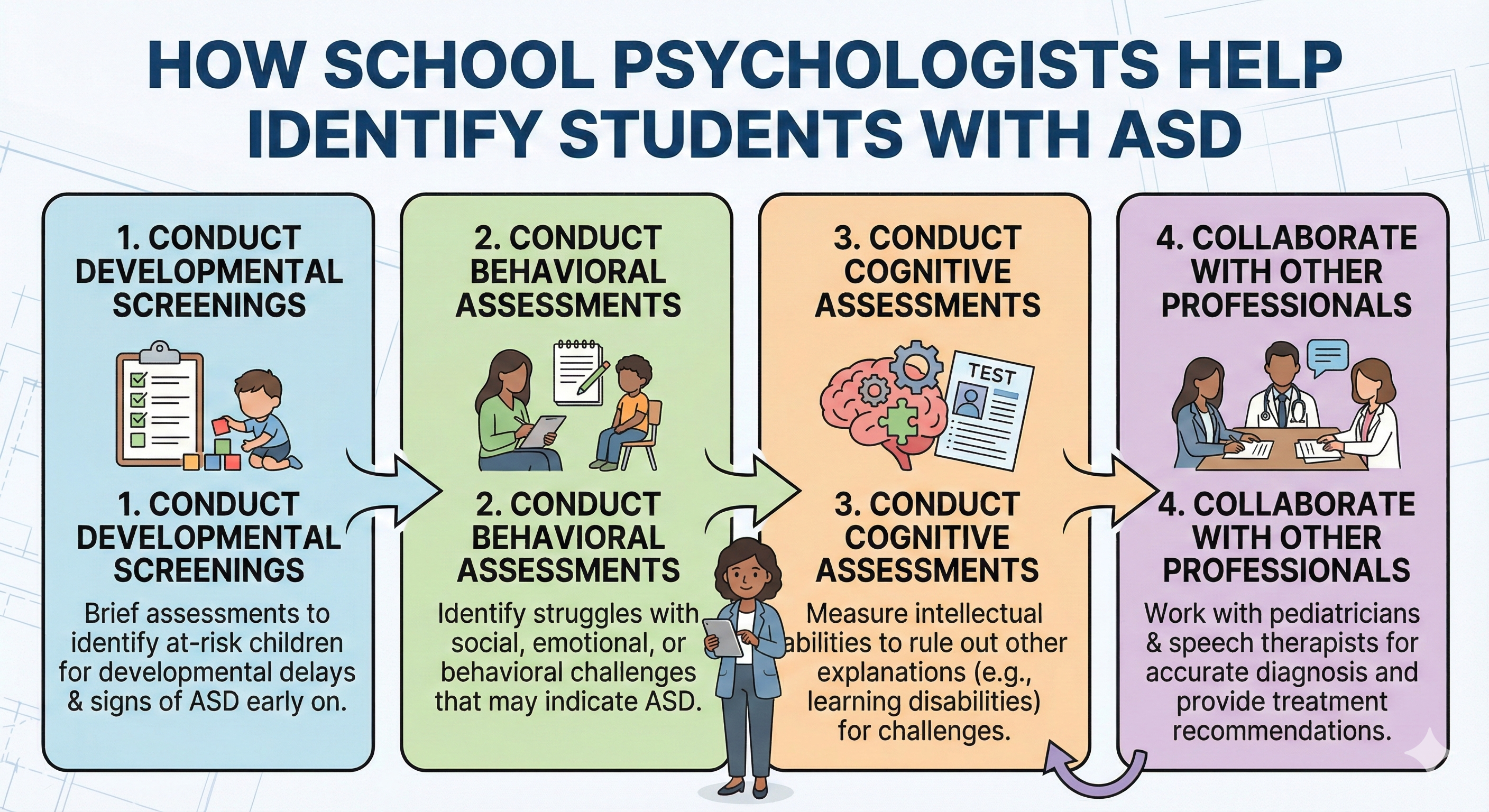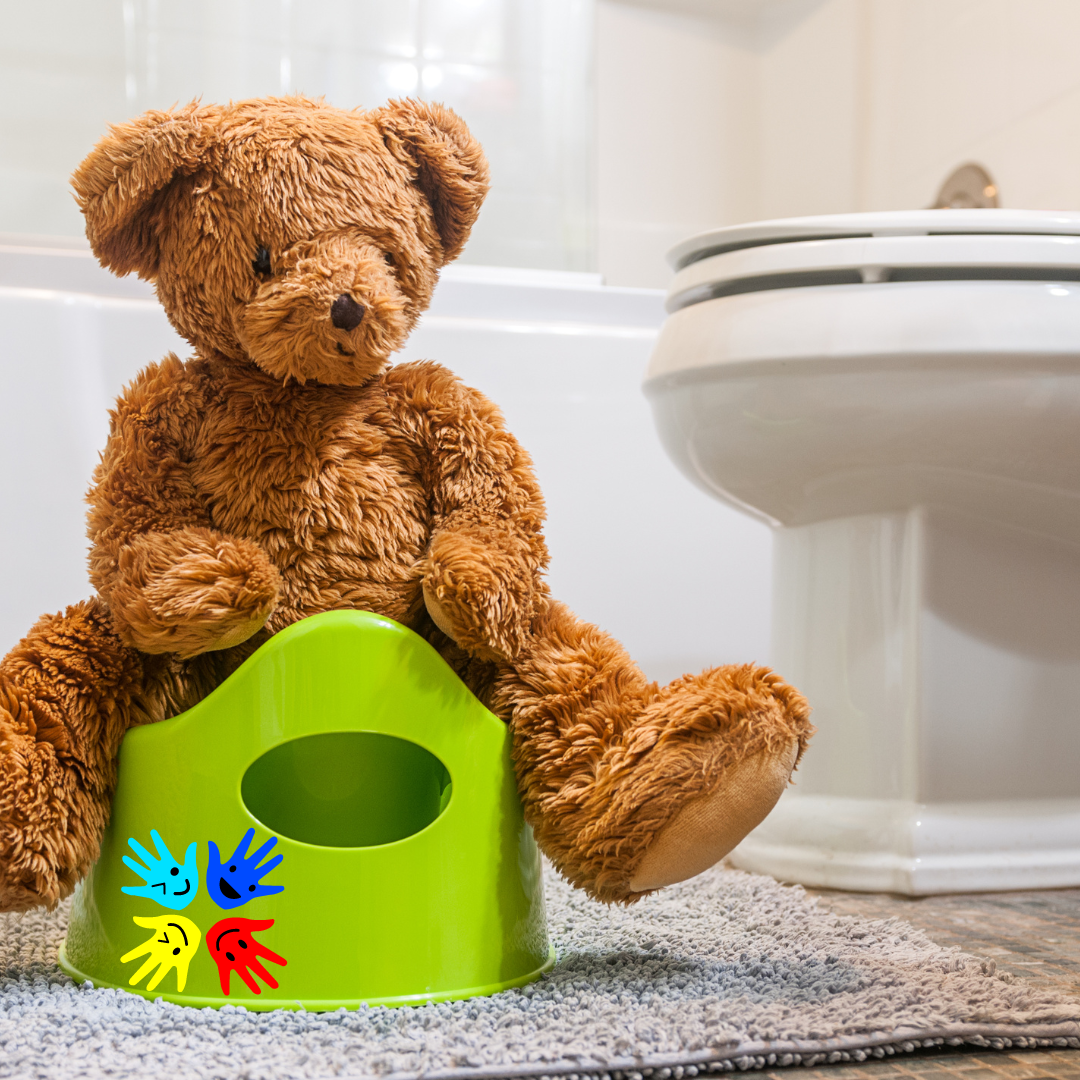Top Online Autism Tests for Initial Assessment and Insights

- 1. Autism Spectrum Quotient (AQ)
- 2. RAADS–Revised (Ritvo Autism Asperger Diagnostic Scale-Revised)
- 3. The Aspie Quiz
- 4. Empathy Quotient (EQ)
- 5. Camouflaging Autistic Traits Questionnaire (CAT-Q)
- 6. VIA Inventory of Strengths
- 7. Toronto Alexithymia Scale
- 8. Child Mind Institute Symptom Checker
- Why Take an Online Autism Test?
- Next Steps After Taking an Online Test
- Conclusion
- How reliable are online autism tests compared to in-person evaluations
- Reliability of Online Autism Tests vs. In-Person Evaluations
- Role of Online Autism Tests
- Getting a Formal Autism Diagnosis
- The Main Limitations of Online Autism Tests
- Impact of Online Autism Tests on Anxiety Levels
Autism Spectrum Disorder (ASD) is a complex neurological condition that affects individuals differently. You might wonder if you or a loved one is on the autism spectrum. Taking an online autism test can be a helpful first step. Although these tests are not diagnostic tools, they can provide valuable insights and indicate whether a formal evaluation might be beneficial. Here, we explore some of the most reputable online autism tests available.
1. Autism Spectrum Quotient (AQ)
The Autism Spectrum Quotient, developed by Simon Baron-Cohen and colleagues, is one of the most widely used screening tools. It consists of 50 statements that assess social skills, communication abilities, and repetitive behaviors. A shorter version, the Short Autism Spectrum Quotient (SAQ), includes only 10 items and is quicker to complete[1][3].
2. RAADS–Revised (Ritvo Autism Asperger Diagnostic Scale-Revised)
The RAADS–Revised is an 80-item questionnaire that helps identify autism in adults. It covers four domains: language, social relatedness, sensory-motor, and circumscribed interests[4].
3. The Aspie Quiz
The Aspie Quiz is a comprehensive test with 119 questions that assess traits associated with Asperger’s Syndrome and high-functioning autism. It evaluates social skills, communication, and other behaviors typical of autism spectrum disorders[3][4].
4. Empathy Quotient (EQ)
The Empathy Quotient, also developed by Simon Baron-Cohen, measures empathy levels. While not exclusively an autism test, it can provide insights into social and emotional functioning, which are often areas of difficulty for those on the spectrum[3][4].
5. Camouflaging Autistic Traits Questionnaire (CAT-Q)
The CAT-Q assesses how individuals with autism might mask or camouflage their autistic traits in social situations. This 25-item questionnaire is particularly useful for identifying autism in adults who have learned to hide their symptoms[3][4].
6. VIA Inventory of Strengths
This 96-item questionnaire helps individuals identify their strengths and weaknesses across various areas, including communication, social, and daily living skills. It can be a valuable tool for setting goals and planning for the future[3][4].
7. Toronto Alexithymia Scale
The Toronto Alexithymia Scale is a 20-item questionnaire that assesses difficulties in identifying and describing emotions, a common issue for many individuals with autism[3][4].
8. Child Mind Institute Symptom Checker
The Child Mind Institute offers a free Symptom Checker for parents concerned about their children. This tool helps identify behaviors and traits associated with autism in children and teens, providing a preliminary indication of whether a formal evaluation might be needed[5].
Why Take an Online Autism Test?
While online autism tests are not diagnostic tools, they can:
- Provide initial insights into whether you or a loved one might have autism.
- Help you decide whether to seek a formal diagnosis.
- Offer a starting point for conversations with healthcare professionals.
Next Steps After Taking an Online Test
If an online test indicates that you might have traits associated with autism, consider the following steps:
- Consult a Healthcare Professional: Discuss your results with a general practitioner or a specialist who can refer you for a formal assessment.
- Seek a Comprehensive Evaluation: A thorough evaluation typically involves multiple assessments, interviews, and observations by a team of professionals[6].
- Access Support Services: A formal diagnosis can help you access support services tailored to your needs, including therapy, educational support, and social skills training.
Conclusion
Online autism tests can be a helpful first step in understanding whether you or a loved one might be on the autism spectrum. While these tests provide valuable insights, they are not a substitute for a professional diagnosis. If you suspect autism, seeking a comprehensive evaluation from a qualified healthcare provider is essential for accurate diagnosis and appropriate support.
By understanding and utilizing these online tools, you can take proactive steps towards gaining clarity and accessing the support you need. Remember, autism is a spectrum, and each individual’s experience is unique.
Citations:
[1] https://www.clinical-partners.co.uk/for-adults/autism-and-aspergers/adult-autism-test
[2] https://exceptionalindividuals.com/candidates/neurodiversity-resources/neurodiversity-quizzes/autism-quiz-test/
[3] https://www.thriveautismcoaching.com/post/best-online-autism-tests
[4] https://embrace-autism.com/autism-tests/
[5] https://childmind.org/article/autism-test-for-kids-and-teens/
[6] https://www.wpspublish.com/blog/how-to-choose-the-best-autism-assessment-for-clients
[7] https://www.reddit.com/r/autism/comments/1062wiy/any_reliable_online_autism_tests/
How reliable are online autism tests compared to in-person evaluations
Online autism tests have gained popularity due to their accessibility and convenience, but their reliability compared to in-person evaluations is limited. Here’s a detailed comparison:
Reliability of Online Autism Tests vs. In-Person Evaluations
Accuracy and Comprehensiveness
Online autism tests are generally less accurate and comprehensive than in-person evaluations by qualified professionals[1][2]. A study published in the Journal of Autism and Developmental Disorders found that online tests were less accurate than in-person evaluations[2]. This discrepancy is due to several factors:
- Limited scope: Online tests typically rely on self-reporting or parent/caregiver responses to a set of questions. They cannot capture the full range of behaviors, social interactions, and communication skills professionals observe during in-person assessments[3].
- Lack of clinical judgment: In-person evaluations benefit from the expertise and clinical judgment of healthcare professionals who can interpret subtle behavioral cues and contextual factors[1].
- Absence of direct observation: Online tests cannot replicate the direct observation of an individual’s behavior, which is crucial for an accurate autism diagnosis[3].
Standardization and Validity
In-person evaluations use standardized diagnostic tools and protocols rigorously tested for reliability and validity. Online tests, on the other hand, can vary significantly in their design, administration, and scoring criteria[2]. This variability can impact the consistency and validity of the results.
Consideration of Comorbidities
Autism often co-occurs with other conditions, such as ADHD, anxiety, or learning disabilities. In-person evaluations can better assess and differentiate between these comorbidities, while online tests may not adequately account for them[1].
Role of Online Autism Tests
Despite their limitations, online autism tests can serve a valuable purpose:
- Initial screening: They can provide a starting point for individuals or caregivers who suspect autism, prompting them to seek professional evaluation[1][3].
- Raising awareness: Online tests can help increase understanding of autism traits and encourage early identification[3].
- Supplementary information: Results from online tests can provide additional insights to professionals during the diagnostic process[1].
Getting a Formal Autism Diagnosis
For a reliable and accurate autism diagnosis, seeking a comprehensive evaluation from qualified professionals is essential. The process typically involves:
- Consultation with a healthcare provider: Discuss concerns and symptoms with a primary care physician or pediatrician.
- Referral to specialists may include psychologists, psychiatrists, or developmental pediatricians specializing in autism.
- Comprehensive assessment: Professionals use various diagnostic tools, including:
- Developmental screenings
- Behavioral evaluations
- Cognitive assessments
- Observation of social interactions and communication skills
- Multidisciplinary approach: A team of specialists may collaborate to provide a thorough evaluation and diagnosis[1][2].
In conclusion, while online autism tests can be a helpful starting point, they are not a substitute for in-person evaluations conducted by qualified professionals. For an accurate and reliable autism diagnosis, it’s crucial to seek a comprehensive assessment from healthcare specialists experienced in diagnosing autism spectrum disorders.
Citations:
[1] https://www.rainbowtherapy.org/blogs-pros-and-cons-of-online-autism-diagnosis/
[2] https://www.goldstarrehab.com/parent-resources/are-online-autism-tests-accurate
[3] https://www.yellowbusaba.com/post/are-online-autism-tests-accurate
[4] https://www.armswideopenaba.com/blog/how-accurate-are-online-autism-tests
[5] https://adult-autism.health.harvard.edu/resources/getting-an-autism-diagnosis-as-an-adult/
[6] https://operationautism.org/autism-101/the-diagnostic-process/
[7] https://www.theautismservice.co.uk/news/the-limitations-of-online-tests-and-online-assessments-for-autism/
[8] https://www.nhs.uk/conditions/autism/getting-diagnosed/how-to-get-diagnosed/
The Main Limitations of Online Autism Tests
Online autism tests have become a popular tool for individuals seeking to understand whether they or their loved ones might be on the autism spectrum. While these tests offer convenience and accessibility, they have several significant limitations. Understanding these limitations is crucial for making informed decisions about autism assessment and diagnosis.
1. Lack of Diagnostic Accuracy
One of the primary limitations of online autism tests is their lack of diagnostic accuracy. These tests are designed as screening tools rather than definitive diagnostic instruments. They often yield a high rate of false positives and false negatives, meaning they can incorrectly suggest the presence or absence of autism. This is primarily because they rely on self-reported data or responses from caregivers, which can be subjective and influenced by various biases[1][2][3].
2. Absence of Clinical Judgment
Online tests cannot replicate a trained healthcare professional’s clinical judgment and expertise. In-person evaluations involve direct observation and interaction, allowing clinicians to assess subtle behavioral cues, social interactions, and critical communication skills for an accurate diagnosis. The absence of face-to-face interaction in online settings limits the ability to capture these nuances, leading to misdiagnosis or overlooking important behavioral indicators[2][3].
3. Limited Scope and Standardization
Online autism tests vary significantly in design, administration, and scoring criteria. This lack of standardization can impact the reliability and validity of the results. Different tests may focus on different aspects of autism spectrum disorder (ASD) and may not capture the full range of symptoms or behaviors associated with autism. Additionally, the variability in test quality and the lack of standardized procedures can lead to inconsistent results[4][5].
4. Potential for Technical Issues
Technical glitches like internet connectivity problems, software malfunctions, or other digital disruptions can interfere with the assessment process. These issues can lead to incomplete or inaccurate results, further compromising the reliability of online autism tests[2].
5. Privacy and Data Security Concerns
Maintaining confidentiality and ensuring data protection is critical in any healthcare process, including online autism assessments. However, the online environment presents unique challenges in safeguarding sensitive information. It’s essential to choose reputable platforms that prioritize data security and comply with applicable privacy laws and regulations[2].
6. Lack of Consideration for Comorbidities and External Factors
Autism often co-occurs with other conditions such as ADHD, anxiety, or learning disabilities. Online tests may not adequately account for these comorbidities, which can affect the accuracy of the assessment. Additionally, online tests may not consider external factors such as environmental influences, family dynamics, and cultural differences, which can significantly affect an individual’s behavior and development[3][5].
Conclusion
Online autism tests can serve as a useful preliminary screening tool. However, they are not a substitute for a comprehensive evaluation by qualified healthcare professionals. The limitations of online tests—such as lack of diagnostic accuracy, absence of clinical judgment, limited scope, potential technical issues, privacy concerns, and failure to account for comorbidities and external factors—highlight the importance of seeking a thorough in-person assessment for an accurate diagnosis. For individuals and caregivers, understanding these limitations is crucial for making informed decisions about autism assessment and ensuring appropriate support and interventions.
By recognizing the strengths and weaknesses of online autism tests, individuals can use them as a starting point while prioritizing professional evaluations to obtain a comprehensive and accurate diagnosis.
Sources:
Citations:
[1] https://www.theautismservice.co.uk/news/the-limitations-of-online-tests-and-online-assessments-for-autism/
[2] https://www.rainbowtherapy.org/blogs-pros-and-cons-of-online-autism-diagnosis/
[3] https://www.apexaba.com/blog/online-autism-diagnosis
[4] https://www.abtaba.com/blog/online-autism-tests
[5] https://www.goldstarrehab.com/parent-resources/are-online-autism-tests-accurate
[6] https://www.armswideopenaba.com/blog/how-accurate-are-online-autism-tests
[7] https://www.brighterstridesaba.com/blog/are-online-autism-tests-accurate
[8] https://www.medicalnewstoday.com/articles/autism-online-test
[9] https://www.achievingstarstherapy.com/blog/are-online-autism-tests-accurate
[10] https://www.reddit.com/r/autism/comments/1062wiy/any_reliable_online_autism_tests/
[11] https://www.apexaba.com/blog/are-online-autism-tests-accurate
[12] https://www.verywellhealth.com/online-tests-for-autism-5198481
[13] https://www.thriveautismcoaching.com/post/best-online-autism-tests
Online autism tests can have varying impacts on individuals’ anxiety levels, depending on several factors. Here’s an overview of how these tests may affect anxiety:
Impact of Online Autism Tests on Anxiety Levels
Potential Anxiety-Inducing Effects
- Uncertainty and Anticipation: Taking an online autism test can create anxiety due to uncertainty about the results and what they might mean for one’s life and identity.
- Misinterpretation of Results: Without proper context or professional guidance, individuals may misinterpret test results, potentially leading to increased anxiety about their mental health status.
- Confirmation Bias: For those who suspect they might be on the autism spectrum, a high score on an online test could reinforce their concerns, potentially exacerbating existing anxiety.
- Stigma and Self-Perception: The prospect of potentially being on the autism spectrum may trigger anxiety related to social stigma or changes in self-perception.
Potential Anxiety-Reducing Effects
- Validation of Experiences: For some individuals, online autism tests may provide a sense of validation for their experiences, potentially reducing anxiety associated with feeling “different” or misunderstood.
- Increased Self-Understanding: These tests can offer insights into one’s behaviors and traits, which may help reduce anxiety stemming from self-doubt or confusion about personal characteristics.
- Motivation for Professional Help: A high score on an online test might encourage individuals to seek professional evaluation. This could potentially lead to proper diagnosis and support, which can alleviate long-term anxiety.
Factors Influencing Anxiety Impact
- Test Quality: More reliable and well-designed tests may provide clearer results, potentially reducing ambiguity-related anxiety.
- Individual’s Mental State: The person’s existing anxiety levels and overall mental health can significantly influence how they react to taking an online autism test and interpret the results.
- Support System: A strong support system can help mitigate anxiety related to taking the test and processing the results.
- Understanding of Autism: Better knowledge about autism spectrum disorder can help individuals contextualize test results, potentially reducing anxiety about what a high score might mean.
- Previous Experiences: Past experiences with mental health assessments or diagnoses can shape how an individual responds emotionally to online autism tests.
Considerations for Minimizing Anxiety
- Proper Framing: It’s crucial to understand that online tests are screening tools, not diagnostic instruments. This understanding can help manage expectations and reduce anxiety about the results.
- Professional Guidance: Seeking professional advice before or after taking an online test can provide context and support, helping manage anxiety.
- Reliable Sources: Using tests from reputable organizations and understanding their limitations can help individuals approach the process more rationally.
In conclusion, while online autism tests can potentially increase anxiety for some individuals, they can also provide valuable insights and motivation for seeking professional help. The impact on anxiety levels largely depends on the individual’s circumstances, understanding of autism, and approach to interpreting the results. It’s important to view these tests as preliminary screening tools and to seek professional evaluation for a comprehensive assessment of autism spectrum disorder.
Citations:
[1] https://link.springer.com/article/10.1007/s40489-021-00275-6
[2] https://www.apexaba.com/blog/online-autism-diagnosis
[3] https://www.hopkinsmedicine.org/news/articles/2023/08/social-media-and-self-diagnosis
[4] https://www.abtaba.com/blog/online-autism-tests
[5] https://oamjms.eu/index.php/mjms/article/download/6492/6066/54947
[6] https://www.medicalnewstoday.com/articles/autism-online-test
[7] https://www.researchgate.net/publication/371665262_Examining_a_model_of_anxiety_in_autistic_adults
[8] https://www.reddit.com/r/autism/comments/maaeea/online_autism_tests/
[9] https://www.ncbi.nlm.nih.gov/pmc/articles/PMC8016686/
[10] https://www.ncbi.nlm.nih.gov/pmc/articles/PMC7867664/
Understanding Autism in Girls: A Comprehensive Guide

Autism in girls is often overlooked or diagnosed later, as their symptoms differ from boys. Understanding the unique signs, early detection, and tailored support are crucial. By educating parents, educators, and healthcare providers, we can create an inclusive environment where girls with autism thrive both academically and socially.
ADOS-2 Scoring Interpretation: A Comprehensive Guide

1. Introduction to ADOS-2 The Autism Diagnostic Observation Schedule, Second Edition (ADOS-2) is a standardized assessment tool. It evaluates social interaction, communication skills, and repetitive behaviors often linked to autism. Clinicians worldwide rely on...
Educational Psychology Reports: How to Request and Use Them

Educational psychology reports are powerful tools that can unlock the right support for your autistic child. These comprehensive assessments provide crucial insights into your child’s learning profile, cognitive strengths, and support needs. Whether you’re...
The Role of Educational Psychologists in Autism Diagnosis: A Continuation

Introduction In our previous post, we discussed the role of school psychologists in diagnosing autism. We learned that while they play a crucial role in identifying potential cases of autism, they cannot make a...
Find the Best Autism Schools in Connecticut for Your Child

How do you know which school is your child’s best autism school in Connecticut? There are so many options that choosing can be overwhelming, but with some research, you can find the ideal educational environment for your autistic child.
Potty Training a Child with Autism: Complete Guide for Parents & Caregivers in 2025

Introduction Potty training any child presents challenges. However, for parents of children with autism spectrum disorder (ASD), the journey requires additional understanding. It also requires specialized strategies and infinite patience. This comprehensive guide provides...
Signs of Autism in Girls: A Comprehensive Guide

Autism Spectrum Disorder (ASD) is a neurodevelopmental condition that affects social interaction, communication, and behavior. While autism is often associated with boys, it is essential to recognize the signs and symptoms in girls as...
Navigating the Individualized Education Program (IEP) Process: A Comprehensive Guide for Parents

Introduction: Understanding Your Child’s Right to an Appropriate Education As a parent of a child with special needs, it is crucial to understand the Individualized Education Program (IEP) process. This understanding ensures your child...
Top Online Autism Tests for Initial Assessment and Insights

Online autism tests, though not diagnostic tools, can be a helpful first step for those suspecting autism in themselves or loved ones. They provide initial insights, aiding in deciding whether to seek a formal evaluation. However, these tests can’t replace in-person assessments by professionals, which offer greater accuracy and comprehensive analysis.
Navigating Healthcare in 2024: A Comprehensive Guide for Families with Autism

In over 40 states since 2011, insurance coverage for autism therapies has increased, yet disparities persist. This guide details the current landscape, advising families on navigating insurance systems, advocating for coverage, and leveraging community resources. Documenting interactions, understanding state laws, and seeking additional programs are vital. Experts stress persistence in securing medically necessary services, while…












2 Responses
[…] Full Guide […]
[…] [Top Online Autism Tests for Initial Assessment and Insights] […]